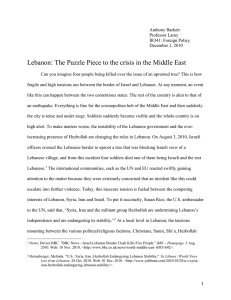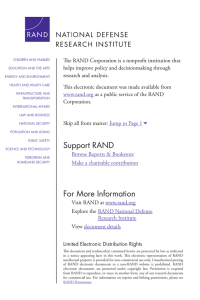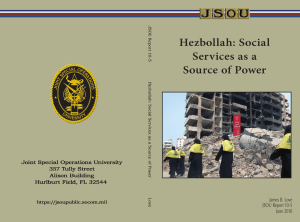Sioux City Journal, IA 07-26-06 Safe and sound
advertisement
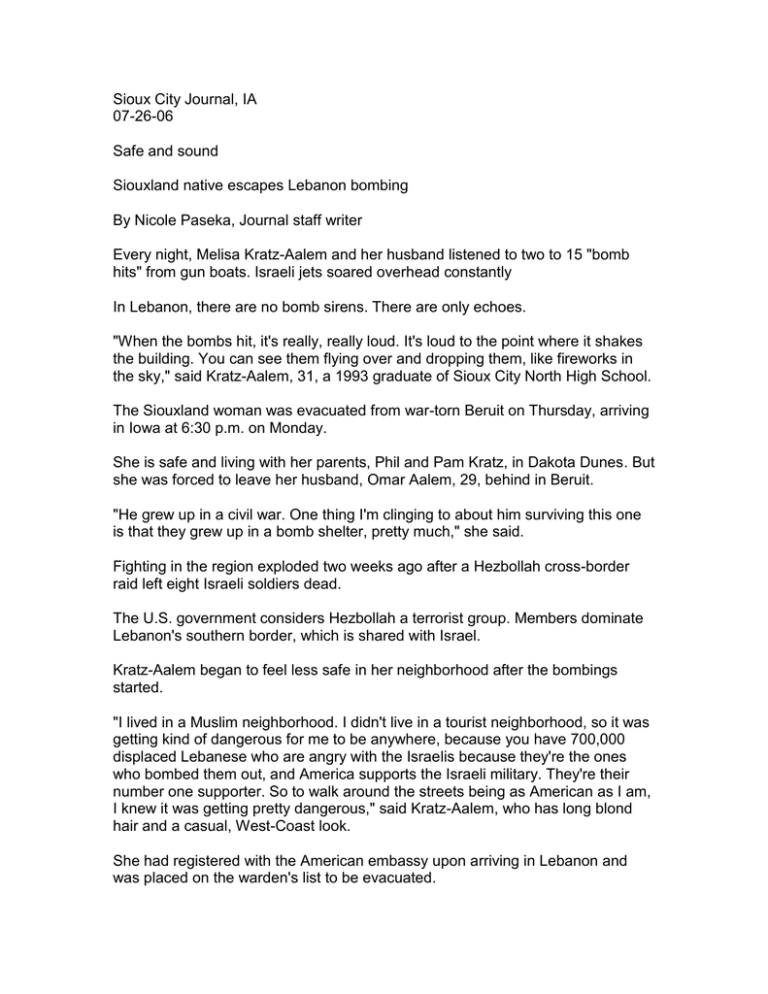
Sioux City Journal, IA 07-26-06 Safe and sound Siouxland native escapes Lebanon bombing By Nicole Paseka, Journal staff writer Every night, Melisa Kratz-Aalem and her husband listened to two to 15 "bomb hits" from gun boats. Israeli jets soared overhead constantly In Lebanon, there are no bomb sirens. There are only echoes. "When the bombs hit, it's really, really loud. It's loud to the point where it shakes the building. You can see them flying over and dropping them, like fireworks in the sky," said Kratz-Aalem, 31, a 1993 graduate of Sioux City North High School. The Siouxland woman was evacuated from war-torn Beruit on Thursday, arriving in Iowa at 6:30 p.m. on Monday. She is safe and living with her parents, Phil and Pam Kratz, in Dakota Dunes. But she was forced to leave her husband, Omar Aalem, 29, behind in Beruit. "He grew up in a civil war. One thing I'm clinging to about him surviving this one is that they grew up in a bomb shelter, pretty much," she said. Fighting in the region exploded two weeks ago after a Hezbollah cross-border raid left eight Israeli soldiers dead. The U.S. government considers Hezbollah a terrorist group. Members dominate Lebanon's southern border, which is shared with Israel. Kratz-Aalem began to feel less safe in her neighborhood after the bombings started. "I lived in a Muslim neighborhood. I didn't live in a tourist neighborhood, so it was getting kind of dangerous for me to be anywhere, because you have 700,000 displaced Lebanese who are angry with the Israelis because they're the ones who bombed them out, and America supports the Israeli military. They're their number one supporter. So to walk around the streets being as American as I am, I knew it was getting pretty dangerous," said Kratz-Aalem, who has long blond hair and a casual, West-Coast look. She had registered with the American embassy upon arriving in Lebanon and was placed on the warden's list to be evacuated. She received a call at midnight to arrive at a port at 3 a.m. "I got there at 2:30 (a.m.), and not that many people were there. By about 9:30 or 10, they actually started moving us off this bridge. So we're sitting all night long on this open-air bridge, just waiting. I was more nervous sitting on the bridge than I was at home because we were just out in the middle of nowhere, waiting for someone to pick us up. The crowd started to gather, and there was pushing and shoving and kids getting ran over." She boarded an amphibious vehicle and was then transferred to the USS Trenton. She spent 15 to 16 hours in Cyprus before boarding a plane that headed west. Kratz-Aalem, a former social worker, first arrived in Lebanon on Dec. 29, 2005, with plans to further her education. "I explored changing fields because I was feeling a little burned out. The University of Washington offers an online program -- it's a masters in strategic planning for critical infrastructure, which is very prominent. That's why I wanted to go to Lebanon. It's a culture that East meets West and has rebuilt itself many, many, many times from the ground up," Kratz-Aalem said. "It will do so again." She met Aalem while chatting on the Internet. The couple was married on June 10 in a Muslim ceremony and planned to have a Christian wedding on July 7, 2007. But now Kratz-Aalem has her doubts that will happen. She was told it could take a year to 18 months before her husband can get the proper visas for him to live in the United States. They stay in touch over e-mail. Before the bombings started, Aalem ran a successful Internet business in Saida, Lebanon. He had $10,000 to $15,000 worth of computer equipment in his business. "His business is gone, and we lost everything," Kratz-Aalem said. She hopes to find a lawyer who works pro bono who could speed up her husband's immigration. She now spends her time working on a new NGO that will help displaced people in Lebanon. UNICEF statistics indicated about 700,000 Lebanese are now refugees. Three hundred people have been killed, one-third of whom are children. Although Kratz-Aalem said she believes Israel's response was disproportionate to the incident two weeks ago, she harbors no hate in her heart. "My husband and I agree openly that Hezbollah needs to be disarmed because they didn't act on the benefit of Lebanon. They acted on the benefit of their own." Acknowledging the 'Holy Land' Hector Avalos, associate professor of religious studies at Iowa State University, sees no short-term solution to the violence in the Middle East. "My fear is we're really at the start of the first global religious war in history," said Avalos, who in 2005 published a book called "Fighting Words: The Origins of Religious Violence." "If you look at where Al-Qaeda is attacking and where Muslim insurgents are active, there has been trouble in the Philippines, Canada, Indonesia, London, Spain, the whole Middle East. It spans the globe. It's not confined to the Middle East," Avalos said. Avalos said he believes the world's leaders need to acknowledge the concept of "sacred space" before there will ever be peace in the region and world. "I think that most violence is due to scare resources. Religion can create scarcity itself. In the case of Palestine, it is holy space. The space is limited and cannot be shared by everyone," Avalos said. On Monday, a Hezbollah negotiator rejected a peace proposal trumpeted by U.S. Secretary of State Condoleezza Rice. Diplomacy in the region continues to fail because world leaders focus only on political and religious issues, Avalos said. So is there a solution in sight? "It's primarily a religious issue, and they have to address the religious issue, or it's not going to go away," he said.

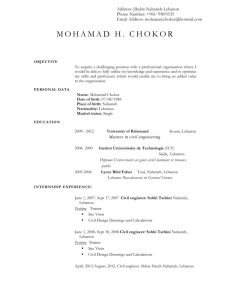
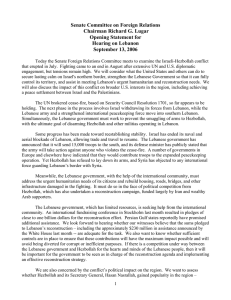
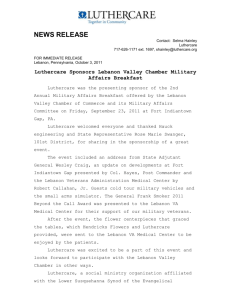

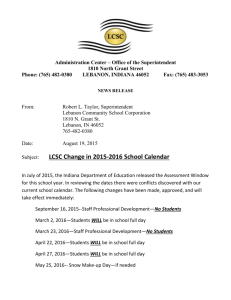
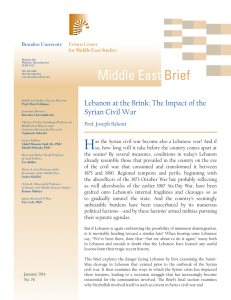
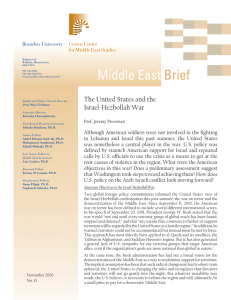
![This article was downloaded by:[Norton, Augustus Richard] On: 7 December 2007](http://s2.studylib.net/store/data/011737237_1-21524df2dc8922d382941aaa7a3fdc90-300x300.png)
